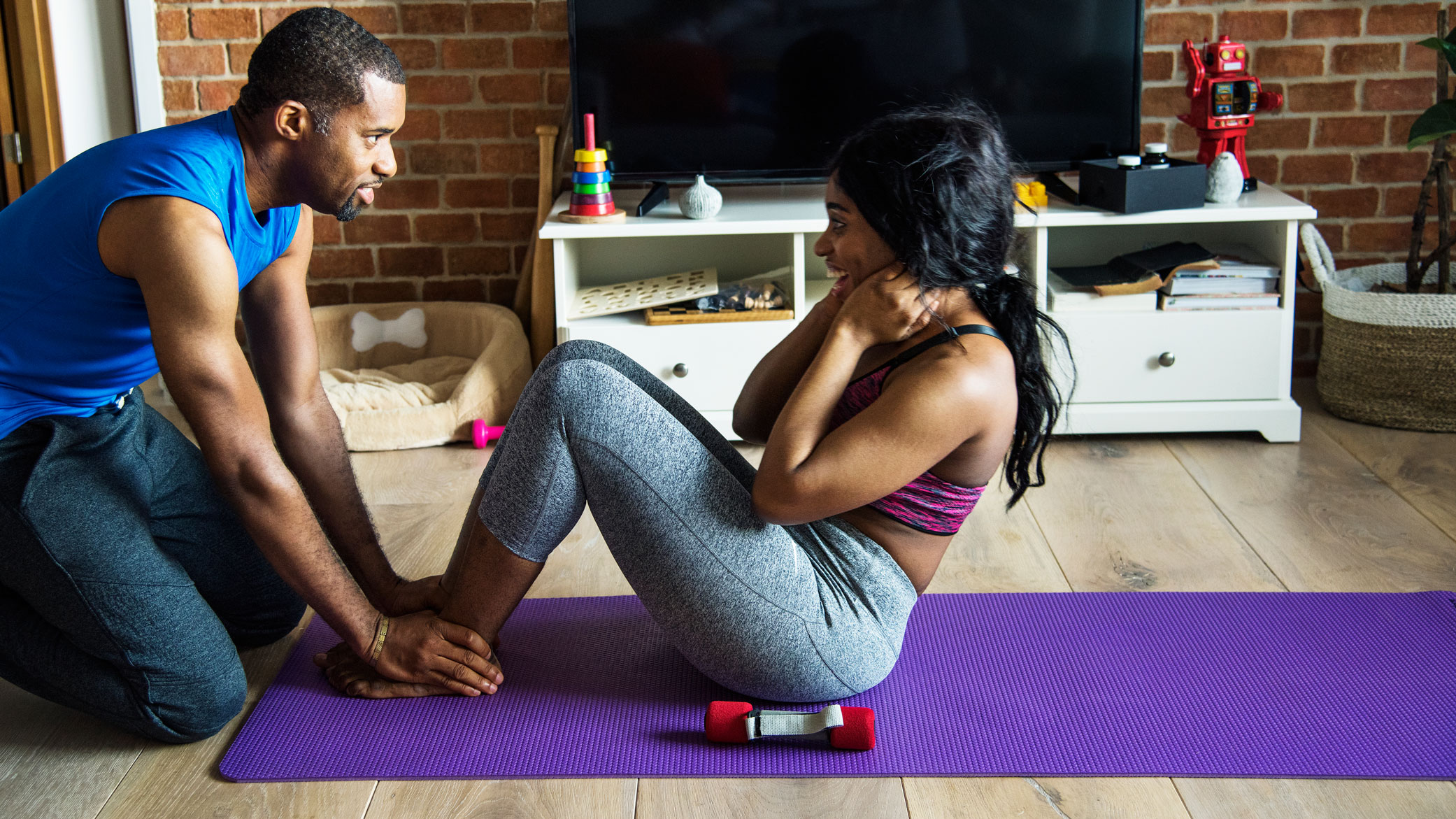Three reasons to buy a fitness tracker (and why they're great for weight loss)
Fitness trackers have never been better – or more affordable. Here's why you should take the leap and start tracking


Start your week with achievable workout ideas, health tips and wellbeing advice in your inbox.
You are now subscribed
Your newsletter sign-up was successful
Many people starting on their weight loss journey go into it relatively blind. You could go for a jog and be careful about what you eat, but an informed, structured approach to weight loss relies on having lots of information to hand about your body, your diet and your exercise routine.
Fitness trackers are a great way to get that sort of information. You can record your calories expended, your heart rate, track your sleep, get notifications while you've been sedentary for too long and lots more.
Fitness trackers range from simple budget bands like the Honor Band 5 and Fitbit Inspire, all the way to chunky smartwatches with all the bells and whistles, like the Apple Watch Series 6 or the Fitbit Sense.
Regardless which one you pick, you can use the additional information to transform not just your workouts but your lifestyle, helping you on your weight loss journey. Don't believe us? Here's three ways fitness trackers can change your behaviour for good.
Fitness trackers can keep you moving

Today's sedentary lifestyle is referred to by researchers as an "obesogenic" environment. From the cheap, high-calorie processed foods that are readily available, all the way to the suburban sprawl encouraging us to use cars to commute to our sit-down desk jobs, our environment seems designed to help us gain weight.
However, fitness trackers can help in the fight against this by issuing reminders to get up and move while we're at our desk. Many fitness trackers can sense when we've been stationary for prolonged periods of time and vibrate after an hour or so, flashing a message to inform us it's time to get up and move around.
These messages work. In an interview with Wired magazine, Shelton Yuen, Fitbit's vice president of research, said they studied users who got six or more reminders to get up and move each day, implying their lifestyles were very sedentary. After a few months of wearing the Fitbit, those notifications decreased around 40%, suggesting people were regularly moving without the prompts from the watch. Something as simple as moving around once an hour can help improve circulation, metabolism and burn off excess calories.
Start your week with achievable workout ideas, health tips and wellbeing advice in your inbox.
Fitness trackers can help you sleep better

Sleep tracking in one of the best innovations to come from fitness trackers and smartwatches in recent years. Although a device strapped to your wrist won't help you get better sleep on its own, it's a great example of why more information is a good thing, especially in relation to how your body operates.
A review of lots of studies published in the scientific journal Sleep and Technology found data from commercially-available fitness trackers corresponded to improved blood pressure, asthma symptons and even improved mood.
Some sleep trackers monitor your heart rate overnight. By looking at your data, you might be able to see an erratic heartbeat every weekend, leading you to realise alcohol or junk food is interfering with your sleep. Other trackers can actually tell whether you're in deep or light sleep, waking you with a gentle buzz rather than a shrill alarm blaring midway through a deep sleep cycle.
Fitness trackers count your calories more efficiently

If you're not keeping track of your weight loss plan in an efficient way, you might think you've earned an extra "cheat meal" by exercising three times this week. Many people looking to lose weight use food diaries to get a very good idea of how much they're eating, and studies show people who keep a food journal are more likely to lose weight overall.
However, knowing the calories you're taking in is only half the picture. In order to get a real handle on your diet, you also need to know how many calories you're burning. Fitness trackers provide this information as a basic functionality, taking into account your height, weight and heart rate, so you can get a much clearer picture of how your weight loss plan is shaping up.
Liked this?
- Today's best cheap Fitbit deals
Matt Evans is an experienced health and fitness journalist and is currently Fitness and Wellbeing Editor at TechRadar, covering all things exercise and nutrition on Fit&Well's tech-focused sister site. Matt originally discovered exercise through martial arts: he holds a black belt in Karate and remains a keen runner, gym-goer, and infrequent yogi. His top fitness tip? Stretch.
